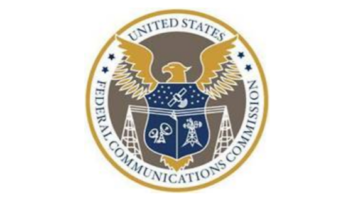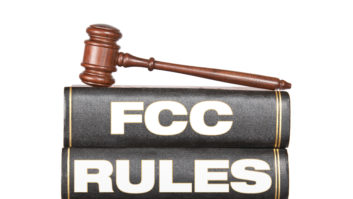My column about the FCC’s political-file consent decrees caught the eye of an engineer whose employer has one radio station under a decree; he was appointed to be its designated compliance officer, so he’s getting a close look at the impact.
“I thought I might offer you a little off-the-record inside look at how easy it is to run afoul of the FCC’s political broadcasting rules,” he told me. But given how many stations are affected by this issue, I asked permission to share his comments anonymously, and he agreed.
Here’s what he wrote:
Paul, 73.1943(c) requires: “All records required by this paragraph shall be placed in the online political file as soon as possible and shall be retained for a period of two years. As soon as possible means immediately absent unusual circumstances.” That “as soon as possible” and “immediately” is what got us and a lot of others in trouble.
I get it … political candidates need to know right away, the same day, what competing candidates are doing in terms of advertising schedules, so that info needs to be up and available… immediately.
What happened in our case was that a gubernatorial candidate placed an order last October for an ad buy on our station. The account executive dutifully entered the order. Traffic got the spots scheduled and the spots aired right on time.
However, the paperwork for the order sat on the AE’s desk for a few days before she gave it to the person responsible for OPIF uploads. And just like that, because an AE set another piece of paper on top of the order sheet, we were in violation. When the OPIF manager got the order sheet, she immediately uploaded it and of course it was time stamped … several days after the order date.
There was no way around it, and we owned up to it in our renewal application.
It was nothing malicious, nothing particularly careless, just an honest mistake on the part of an employee who probably should have had a greater awareness of the rule and the possible consequences of violation.
Paul, another perilous, treacherous path to violation is network programming.
Oftentimes, political buys are made at the network level. The syndicators are required by contract (by our contracts, anyway) to immediately send us the paperwork so that we can upload it, but they quite often do not, either at all or not until several days later if they do at all.
We have no way of knowing what political ads are embedded until/unless we hear them or the syndicators tell us. When we do get the paperwork, we always annotate it with the date/time received and immediately upload it. But that could still constitute a violation, even though it is arguably beyond our control. The FCC would argue that we are responsible for everything that goes out over our airwaves, and they are correct.
The point of all this is that while political OPIF violations in this renewal cycle may seem epidemic, I don’t believe that is the case.
The OPIF and time stamping of uploads make it impossible to claim compliance if even a little late — not that we would ever knowingly do that anyway (we always in the past disclaimed our certifications in license renewal applications, “to the best of our knowledge …”). A tiny mistake under the current system makes for a black-and-white license renewal issue. It’s all very frustrating.
For now, we have put an embargo on all non-federal political advertising and will only take federal candidate ads that we are required to by law.
We hate to leave money on the table and not give candidates a platform, but we simply cannot take a chance that another small mistake will be made and affect our licenses.
Thanks to this reader for sharing his experience of how the current FCC initiative is affecting one company’s daily operations.












